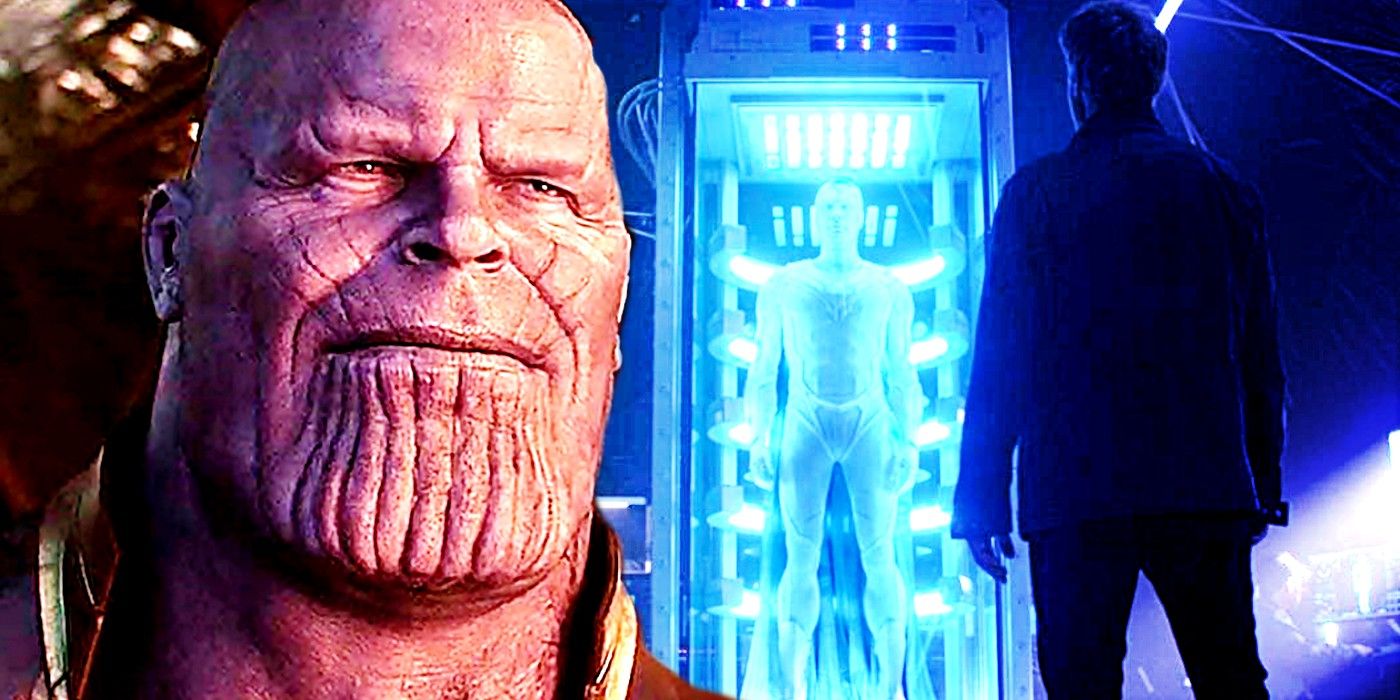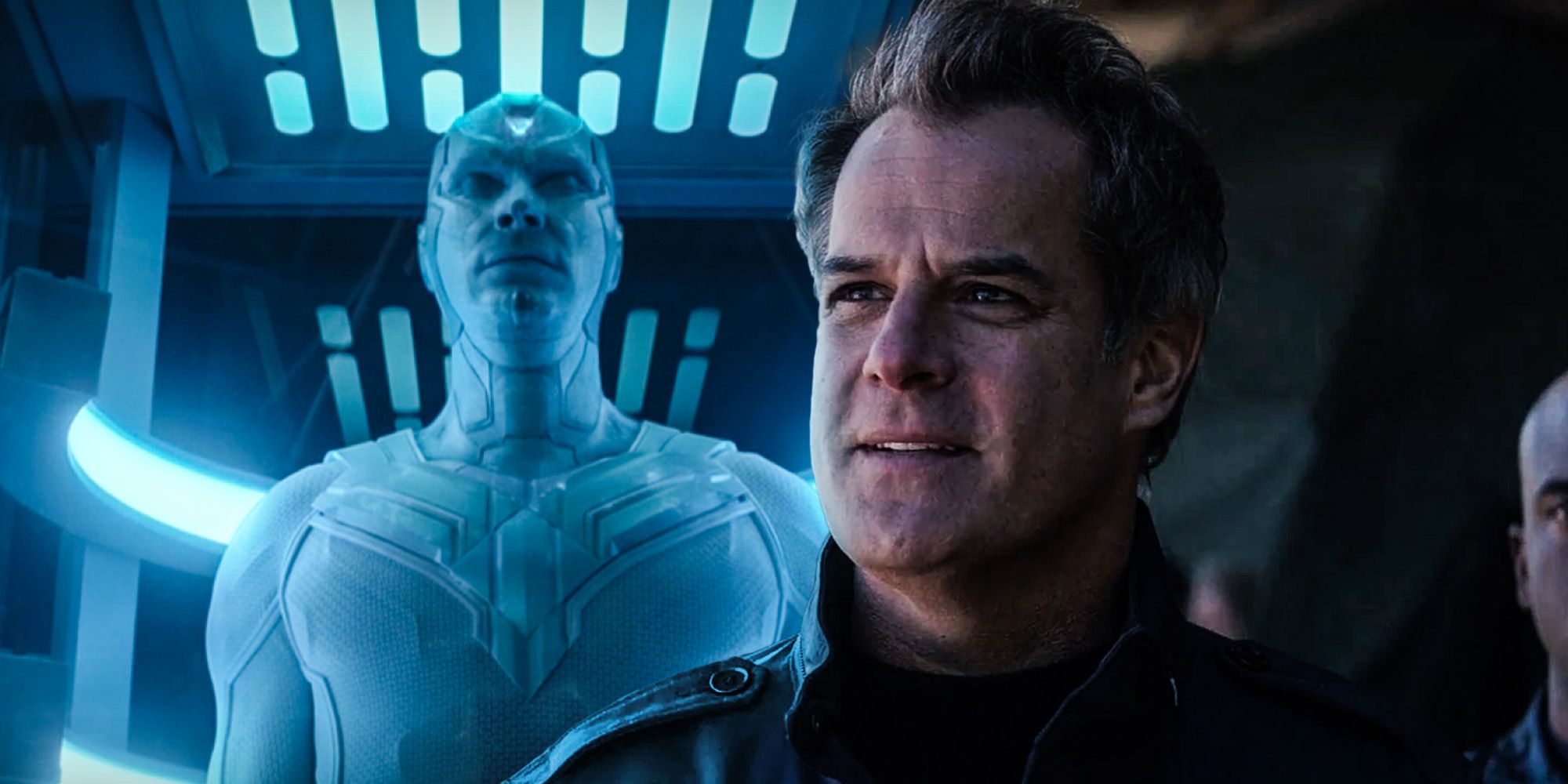If Thanos was right in Avengers: Infinity War and Endgame, then secondary antagonist Director Tyler Hayward also has a point in WandaVision. In both cases, the villains are villains of circumstances, driven by past trauma that has twisted their minds away from logic to a place where only extreme measures are the way forward. And in both cases, the response from the audience should be the same - but there is a mismatch, because Thanos' agenda is a far more edgy thing to get behind.
In WandaVision, Hayward is the brain behind covert operation Project Cataract, designed to revive Vision after his death in Infinity War in order to use him as an asset in a coming war against others like Thanos who could threaten the world once more. Though he works for S.W.O.R.D. - a legitimate agency - the successor to Maria Rambeau appears to have gone rogue as a means to prove that he can be the one to stop threats like Scarlet Witch. Even if his plan initially required some antagonism of Wanda in order to justify its very existence.
Hayward is a fairly typical villain: a tech-hungry man with corporate leanings (remember he balked at the idea of Vision’s corpse being buried because of its value) who hides his real intent until the final act. But thanks to the Thanos effect - the strange propaganda some MCU fans spread on behalf of the Mad Titan - it’s impossible not to acknowledge that Hayward too has a justifiable empathy to his motives. He is a man who watched his world end and it warped him massively, to the point that he doesn’t recognize moral righteousness. He and Thanos are Noel bedfellows and to praise one means to praise both.
Hayward seems to be being compared to more conventionally one-dimensional villains like Justin Hammer or Malekith rather than someone as complex as Thanos and there is a serious double standard. The acting Director of S.W.O.R.D. expressly talks about what it felt like to be left behind when the “blip” took away half of humanity: he is a PTSD-sufferer like Tony Stark but he’s treated like his only vested interest is in making weapons. So far, there hasn’t been enough consideration for the fact that Hayward’s story is a dark inversion of Wanda’s, only without the nuance of his backstory. Just as Thanos and Tony Stark were unified by their inspiration but took different paths (with parallel mistakes), Hayward and Wanda are too; the audience just isn’t afforded the luxury of seeing Hayward’s own personal traumas.
Advocating for the parts of Thanos’ plan that make him “right” without being willing to understand what made Hayward turn to Cataract is only part of a story. Either both were wholly wrong or both should be held up in the same complex light, but because WandaVision sidelines Hayward consciously, there’s less invitation to empathize with him. That feels like a conscious choice too, because WandaVision as an entire show is about perspective and the reliability of the story-teller, obsessively throwing in twists and red herrings and changing everything by revealing more than was first shown. It’s a genius tactic and Hayward’s moral complexity and missing backstory are key parts of that achievement, particularly as they stand as another challenge to the audience.








